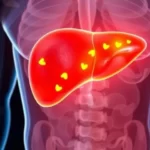Have you ever glanced in the mirror and noticed your tongue sporting a dark, fuzzy layer? It might seem alarming, but you’re likely dealing with a benign condition known as hairy tongue. While conventional medicine often addresses this with surface-level treatments, homeopathy offers a deeper, root-cause approach to healing.
This article delves into the causes, symptoms, medical background, and, most importantly, the natural remedies used in homeopathy for treating hairy tongue. We’ll also explore real-life cases, prevention strategies, and what to expect from holistic healing.
What Is Hairy Tongue and Why Does It Occur?
Hairy tongue, or lingua villosa, is a temporary, harmless condition characterized by the elongation of filiform papillae, tiny projections on the tongue’s surface. Usually, these papillae shed regularly through friction from eating and tongue movement. However, when this natural process is disrupted, keratin accumulates, causing the papillae to grow longer and trap debris, bacteria, and dead skin cells.
The result? A tongue that appears brown, black, green, or even yellow, and feels “furry” or coated.
Who’s at Risk?
Several factors can increase the likelihood of developing hairy tongue:
- Smoking and tobacco use: Tobacco products can stain the tongue and promote bacterial growth.
- Excessive coffee or tea consumption: These beverages can contribute to discoloration.
- Poor oral hygiene: Inadequate brushing and flossing can lead to debris accumulation.
- Use of certain medications: Antibiotics and oxidizing mouthwashes can disrupt the oral microbiome.
- Soft diet: Lack of abrasive foods reduces natural exfoliation of the tongue.
- Dry mouth (xerostomia): Reduced saliva flow hinders the natural cleansing of the tongue.
- Immunocompromised states: Conditions like HIV can predispose individuals to hairy tongue.
The Medical Viewpoint
Pathogenesis
Hairy tongue results from defective desquamation (shedding) of the keratinized filiform papillae. Without natural shedding, keratin builds up, elongates the papillae, and forms a surface where pigment-producing bacteria and fungi thrive.
Microscopic examination reveals:
- Elongated keratin projections
- Trapped microbial colonies
- Mild inflammation
- Possible Candida albicans (yeast overgrowth)
Symptoms
Although hairy tongue is generally harmless and painless, its appearance can be startling. However, it’s not just about how it looks; many individuals report a range of accompanying symptoms that can impact daily life and comfort.
Common symptoms include:
- Bad breath (halitosis)
- Metallic or bitter taste
- Tickling or gagging sensation due to elongated papillae
- Burning sensation, especially in cases involving bacterial or fungal infection
- Dry mouth or excessive coating that feels thick or uncomfortable
Even if the condition isn’t dangerous, these symptoms can significantly affect quality of life, from social embarrassment to difficulty enjoying meals. That’s why addressing hairy tongue holistically, both in appearance and underlying causes, is essential.
Diagnosis
Hairy tongue is typically diagnosed clinically, meaning a healthcare professional can often identify it just by looking at the tongue and reviewing the patient’s history. The condition’s distinctive appearance, discoloration, elongated papillae, and a “hairy” surface usually make further testing unnecessary.
However, to rule out other oral conditions that may mimic its appearance, such as:
- Oral hairy leukoplakia (common in immunocompromised individuals)
- Candidiasis (a fungal infection causing white or creamy patches)
- Lichen planus (a chronic inflammatory condition)
- Pseudo-black tongue (caused by substances like bismuth)
A biopsy or microbial culture may be performed, especially if symptoms persist despite improved oral hygiene or if there’s uncertainty in diagnosis.
Because many patients worry the appearance could signal something more serious, clinicians often use diagnosis as a time to offer reassurance, explaining that black hairy tongue is benign, non-cancerous, and reversible with proper care.
Conventional Treatments
Conventional medicine generally considers black hairy tongue a cosmetic and temporary condition. As such, treatment focuses primarily on mechanical cleaning and removing contributing factors rather than deeper physiological causes. In most cases, no medication is required unless secondary infection or complications arise.
Doctors usually recommend:
- Brushing the tongue gently with a soft toothbrush or scraper
- Eliminating known triggers, including tobacco, drink, coffee, and certain antibiotics
- Using keratolytic agents like trichloroacetic acid to remove the keratin buildup chemically
- Surgical removal or laser excision of hypertrophic papillae, in rare and resistant cases
These approaches often produce short-term results, especially when hygiene habits improve. However, they tend to address only the symptoms, not the root cause, such as metabolic imbalances, chronic inflammation, or systemic issues.
That’s why many individuals turn to homeopathy, which offers a deeper, individualized approach focused on preventing recurrence and restoring internal balance, not just removing the visual signs.
Why Choose Homeopathy for Hairy Tongue?
Homeopathy Treats the Root, Not Just the Tongue
Homeopathy isn’t just about removing the coating; it’s about understanding why your body allowed it to form in the first place. Whether it’s sluggish digestion, antibiotic aftermath, chronic dryness, or suppressed emotions, homeopathy sees the whole picture.
- No side effects
- Suitable for all ages
- Non-addictive and works in synergy with your body’s natural processes
Top Homeopathic Remedies for Hairy Tongue
Each remedy is chosen based on individual constitution, cause, and sensations:
- Nux Moschata: Extreme dryness of mouth and tongue; tongue feels “furry” or numb; worse in cold, dry weather.
- Silicea: Chronic tongue coating with bad breath; history of suppressed infections; sensitive to cold; slow healing.
- Kali Bichromicum: Sticky, yellowish-white coating; thick, stringy mucus in the mouth; worse in mornings and humid weather.
- Lycopodium: Yellowish or brown tongue coating; bloating, gas, and digestive issues; craves sweets and warm food.
- Mercurius Solubilis: Foul odor, excessive salivation; spongy, swollen tongue; sensitive teeth and bleeding gums.
- Natrum Muriaticum: Mapped tongue with red patches and a sensation of burning; often indicated for individuals who are sensitive and reserved.
- Phosphorus: Dry, cracked, and bleeding tongue; craving for cold drinks and sensitivity to odors.
- Arsenicum Album: Blackish or bluish discoloration of the tongue; burning sensation and restlessness.
- Taraxacum Officinale: White coating that peels off in patches, leaving raw, sensitive areas.
- Antimonium Crudum: Thick, white-coated tongue; associated with digestive disturbances and a craving for sour foods.
Lifestyle & Supportive Measures During Homeopathic Treatment
For optimal results, support your remedy with smart habits:
Do’s:
- Use a soft tongue scraper daily
- Drink 8–10 glasses of water
- Eat fibrous fruits (apples, carrots)
- Visit your homeopath for follow-ups
Don’ts:
- Smoke or chew tobacco
- Overuse of mouthwashes with peroxide
- Rely on antibiotics unless necessary
- Ignore symptoms like pain or bleeding
Case Study: Real Healing Example
Patient: 47-year-old male with recurring black tongue and sour breath
Symptoms: Dry, brown-coated tongue; digestive complaints
Homeopathic Treatment: Lycopodium 200 followed by Silicea
Outcome: Symptom-free in 6 weeks with full papillae normalization
This case showed how black hairy tongue can be resolved by targeting constitutional imbalances.
Conclusion
Hairy tongue might seem odd or even embarrassing, but it’s your body’s way of signaling an imbalance. Homeopathy offers more than a fix; it provides understanding. By addressing your constitution, habits, and overall health, it not only clears your tongue but also improves your well-being.
Choose the gentle, effective path. Choose Hairy Tongue Treatment in Homeopathy because real healing begins within.
FAQs
What is the cause of a hairy tongue?
Hairy tongue is mainly caused by poor oral hygiene, smoking, excessive coffee or tea intake, and a lack of natural exfoliation of the tongue surface.
What STD causes hairy tongue?
An STD does not cause hairy tongue itself, but oral hairy leukoplakia, which looks similar, may be associated with HIV infection. A proper diagnosis is essential.
What causes your tongue to fur up?
A furry tongue appearance happens when dead cells and keratin build up on elongated papillae, trapping bacteria, food particles, and staining substances.
How do you get rid of a hairy tongue fast?
You can reduce it by brushing the tongue daily, improving oral hygiene, staying hydrated, and eliminating triggers like tobacco and alcohol. For more profound healing, homeopathy helps address the root cause.
What does a coated tongue indicate?
A coated tongue can signal dehydration, poor digestion, or microbial imbalance. It’s often harmless but can also reflect underlying systemic issues.
How do you get rid of hairy tongue permanently?
Long-term resolution involves consistent oral care, lifestyle changes, and in some cases, individualized treatment like homeopathy to prevent recurrence.











